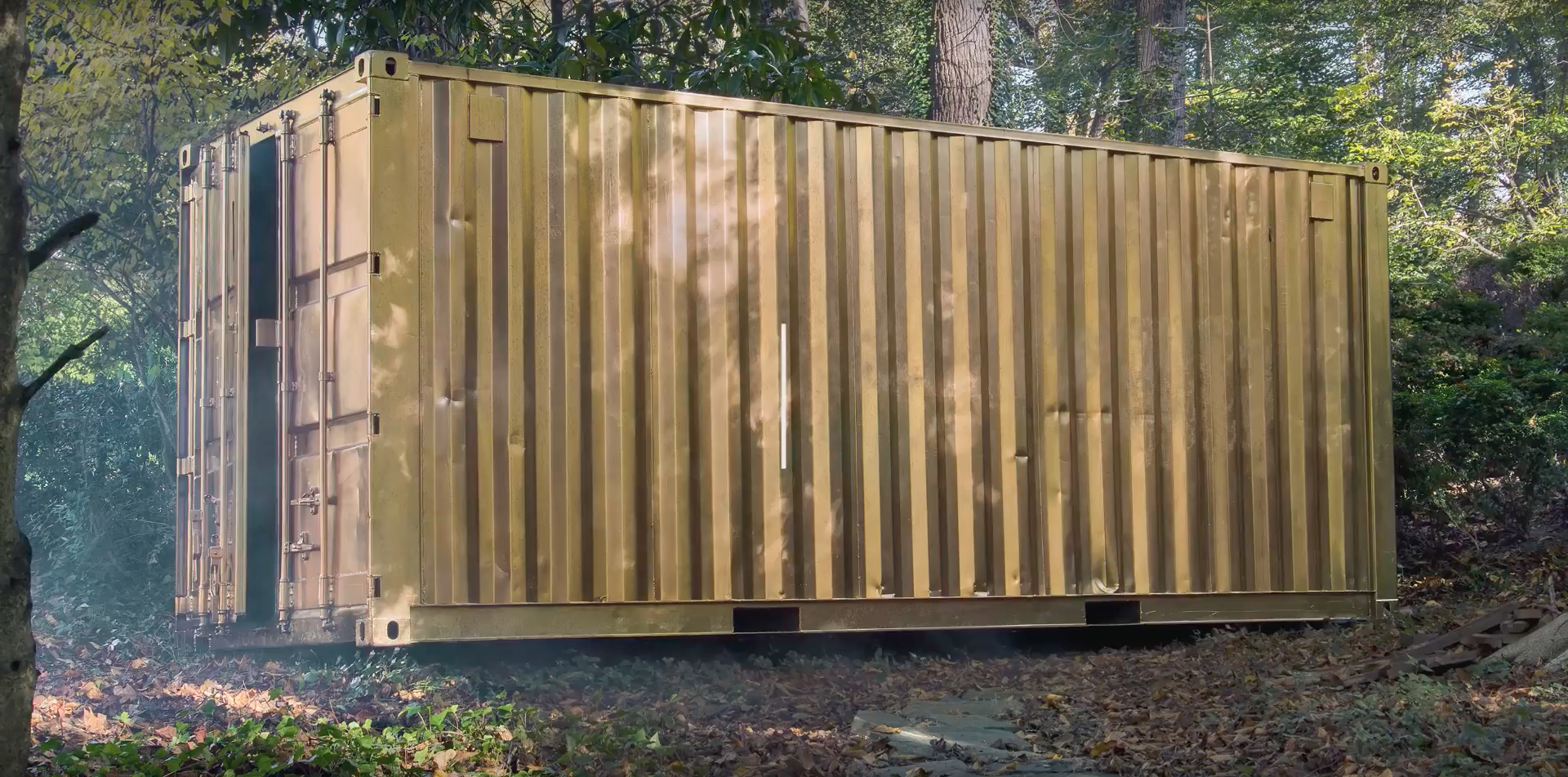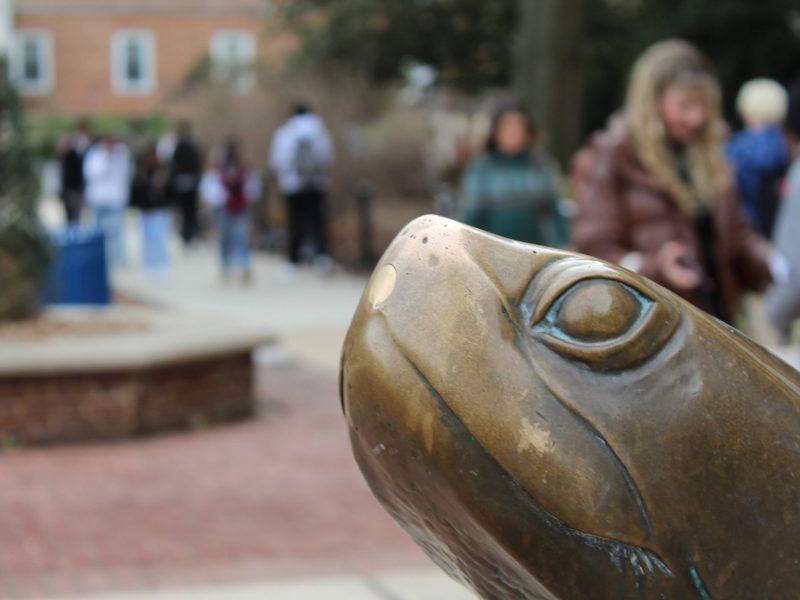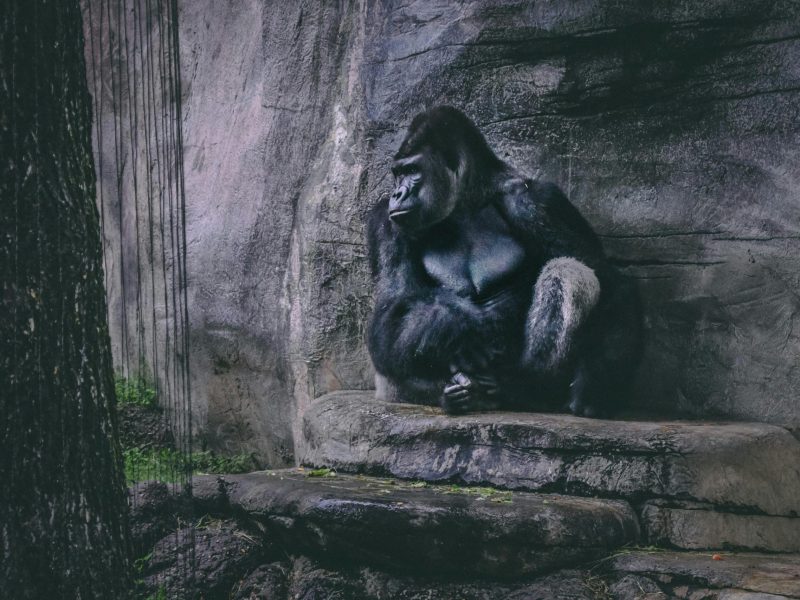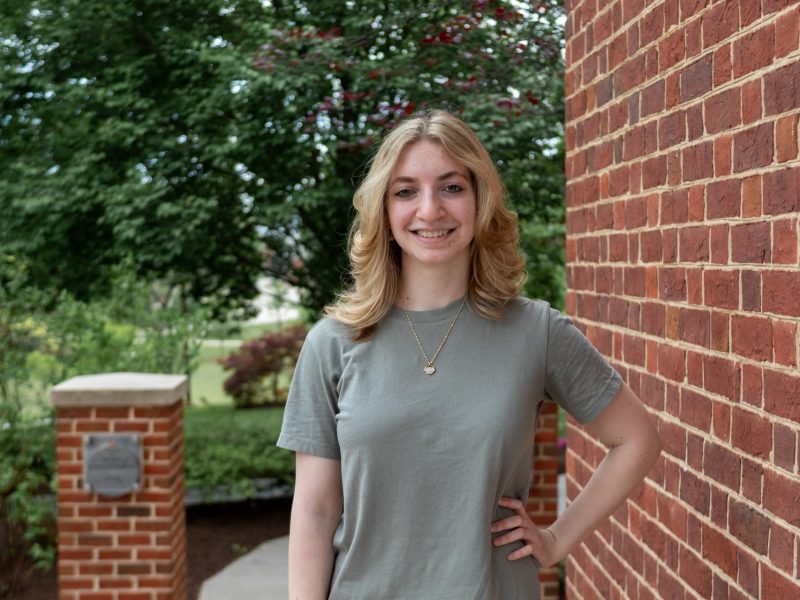Standing in a repurposed shipping container with a gold-colored exterior, Jake Levin talked about his company’s latest project. His demeanor was friendly and intimate, never awkward or forced. He had a strong presence — even though he was located hundreds of miles away in Brooklyn, New York.
The conversation was made possible because of Shared Studio’s portals project, which debuted in 2014 as an immersive, full body way to connect people from across the world in a shared space. And this university now has one of those exhibits on its campus outside of The Clarice Smith Performing Arts Center.
“We want people to re-examine how space is shared globally,” Levin said from the other end of the portal’s video stream. The portal enables all sorts of connections like this across the globe, including in Mexico City, Rwanda and Middle East refugee camps.
According to Levin, the chief of staff at Shared Studios, the portal is utilized for everything from language immersion and international conversations for educational purposes to random conversations with strangers.
James Riker, the director of Beyond the Classroom, has been teaching a course at this university that uses the portal to help students understand the international perspective on America’s elections.
“This is the next best thing I can do for the students without giving them a plane ticket and a passport,” he said of assigning their portal project, which involves each student interviewing someone from a foreign country through the portal.
The non-English side will typically have a translator, as well as a random citizen, who are typically young, based on what the students have seen, Riker said.
“Whether or not we like it, the U.S. has a great big global footprint,” Riker said. So he said it is helpful for his students to “gain valuable perspective from an array of different voices.”
The independent curator of this university’s portal, Deirdre Darden, who makes sure the conversations run smoothly, said that educational purposes are an excellent use of the portals, but many of its uses have been “creative exchanges,” such as dance and musical performances by student groups.
The portal has been used in international politics as well.
The U.N. General Assembly used a portal stationed in a refugee camp to allow everyday people living in these camps to talk about their concerns while the U.N. deliberated how to handle the crisis.
“UNICEF has been amazing,” Levin said of the group, which has enabled Shared Studios to place these portals in war-torn areas such as Afghanistan and Iraq.
Levin said that one of the biggest goals of the project is break down stereotypes, because “it’s very hard to hate someone when you’re looking them in the eye.”
Whatever the world views of those in the portal, everyone involved in the project said that the face-to-face experience of talking to someone from another country could break down barriers, demolish stereotypes and teach both sides about the life of the other person.
Darden said the portal will be outside The Clarice until Nov. 18, and students may make an appointment to try it out by visiting Shared Studios’ website.



